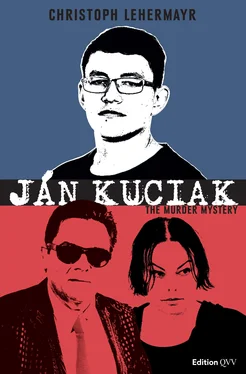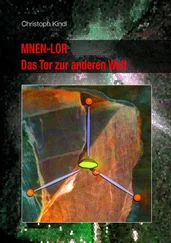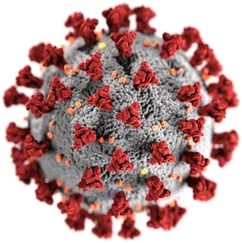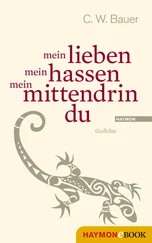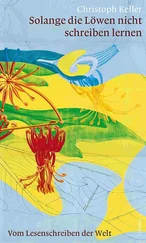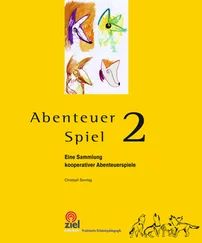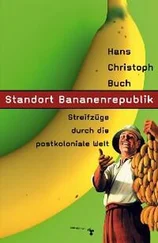Christoph Lehermayr - Ján Kuciak
Здесь есть возможность читать онлайн «Christoph Lehermayr - Ján Kuciak» — ознакомительный отрывок электронной книги совершенно бесплатно, а после прочтения отрывка купить полную версию. В некоторых случаях можно слушать аудио, скачать через торрент в формате fb2 и присутствует краткое содержание. Жанр: unrecognised, на английском языке. Описание произведения, (предисловие) а так же отзывы посетителей доступны на портале библиотеки ЛибКат.
- Название:Ján Kuciak
- Автор:
- Жанр:
- Год:неизвестен
- ISBN:нет данных
- Рейтинг книги:3 / 5. Голосов: 1
-
Избранное:Добавить в избранное
- Отзывы:
-
Ваша оценка:
- 60
- 1
- 2
- 3
- 4
- 5
Ján Kuciak: краткое содержание, описание и аннотация
Предлагаем к чтению аннотацию, описание, краткое содержание или предисловие (зависит от того, что написал сам автор книги «Ján Kuciak»). Если вы не нашли необходимую информацию о книге — напишите в комментариях, мы постараемся отыскать её.
Ján Kuciak — читать онлайн ознакомительный отрывок
Ниже представлен текст книги, разбитый по страницам. Система сохранения места последней прочитанной страницы, позволяет с удобством читать онлайн бесплатно книгу «Ján Kuciak», без необходимости каждый раз заново искать на чём Вы остановились. Поставьте закладку, и сможете в любой момент перейти на страницу, на которой закончили чтение.
Интервал:
Закладка:
Ján Kuciak sprints down the stairs and pushes open the door. A biting, snowy wind hits him. The next day, Thursday, he wants to work from home, adding the finishing touches to his story and preparing himself for his confrontation with the Italians. This he’s planned for the following Monday. Together with a photographer, he wants to make the journey east and call on the men of the ‘Ndrangheta on their farmlands – from where they pull the strings, and threaten anyone who gets in their way.
The children of socialism
In his mind, Kuciak probably goes through his research over and over again as he hurries on in the cold. He follows a route that’s already familiar to those planning an attempt on his life. From the office by bus to the station, and from there aboard the regional express that comes hourly from Vienna on to the town of Galanta; around a half-hour journey. Then the last few kilometres by car to his house. It’s Kuciak’s daily routine – and his killers are aware of it. Without noticing or even suspecting it, Kuciak has been being shadowed. Photos which will be secured much later show him leaving the offices, waiting for the bus and even at home, renovating his house. His murderers know who he is, what he looks like and where he lives. They have access to data that has come direct from inside the security apparatus. On orders from the very top, a “spider” of Kuciak has been downloaded and passed on. The term is police jargon for a network of relationships with the wanted person at the centre, complete with address, car registration number and any entries in the criminal records. Lines lead from the centre to information about family members. Ján Kuciak has been spied on, shadowed and screened. And today, the 21st of February 2018, he’s due to die.
Outside the station in Galanta a woman with shoulder-length brunette hair is waiting for him: Martina Kušnírová, his fiancée. Both the same age, the pair met in 2013 when they were students at the university in Nitra, and they’ve been a couple ever since. In about two months, on 5th May, they plan to get married. Until then, they’re busy with preparations for the big day. Kušnírová has spent the afternoon at home. She’s been on the internet, looking for nice labels for the wine bottles at the wedding. Later she’ll call her mother, who’d confessed the day before to taking out an extra loan for the wedding. “But Mum, that’s not necessary,” says Kušnírová, annoyed, “Janko and I have enough money put aside.”
Her mother is a widow, and has had to scrimp and save her whole life just to make ends meet for herself and her two children. For the Kuciaks, with three children, it was also often a struggle to get by, in spite of all their hard work. When the mother fell pregnant with her first child Ján in 1989, everything that had once seemed certain for the family changed. As her belly grew, outside the rotten “Real Socialist” system was crumbling. Ján Kuciak was born on 17th May 1990 into a different country: the Velvet Revolution had been accomplished, the system had been toppled, Václav Havel was president, a new era had begun – and everything was going downhill. Especially Slovakia, which in 1993 became independent from the wealthier Czech part of the country, was looking into an economic abyss. Many of its desolate factories closed, and soon one in every three people was out of work. All of that makes the parents even prouder of their children. They’ve made it – Kuciak as an up-and-coming journalist, Kušnírová as an archaeologist. Right now she should be at excavations in the east of the country, and not standing at the station waiting for her fiancé. But the snow that’s been falling for days and the cold that has central Europe in its grip has thwarted her plans. In the parking area in front of the station is an old dark-green VW Passat station wagon, a 2003 model, which the couple bought a while ago and which has been giving them problems ever since. The day before, Kuciak had been unable to unlock it with the remote control. A defective battery, his brother-in-law-to-be had surmised, correctly, on the phone last night. It’s after half past six in the evening as Kuciak gets off the train and hugs his fiancée. In the dark he manages to open the trunk of the Passat, climb through it, open the hood and take the battery home to charge it.
Three shots, two dead
It’s ten kilometres from the station in Galanta to the couple’s home in the village of Vel’ká Mača. The route runs through flat and, in summer, extremely fertile land, where wheat, corn, sugar beet and vegetables are grown. The Danubian Lowland in southern Slovakia is coloured by the country’s Hungarian minority. Hungarian is the dominant language, especially in smaller towns, but mixed marriages are becoming increasingly common and tensions between the two ethnic groups have recently decreased noticeably. Kuciak and Kušnírová, both originally from the more mountainous part of Slovakia, moved here deliberately. Both of them grew up in the countryside, and they love nature and the sense of community in a village. The idea of living in a small, overpriced apartment in the urban canyons of Bratislava seemed less than appealing. It’s long been dark as Kušnírová starts the small service pickup truck at the station. The wind is sweeping over the flat countryside. The car speeds past fallow fields. The ground is frozen, and it’s snowing lightly. Frost-covered trees appear like ghosts in the beam of the headlights.
She drives the same route that two men in a Citroën Berlingo took shortly before. At 6:28pm this car stops at the edge of the village, just before the cemetery, right at the town sign. Underneath the sign, an extra panel in Slovak and Hungarian advises that the municipality is subject to video surveillance. One of the men gets out of the car. He’s a big, strong guy, muscular, with a shaved head. It’s clear from his appearance that he was once a professional soldier, working on missions abroad, most recently with the UN in Cyprus. After his discharge, he signed on as a security guard on one of the big container ships that cruise the oceans, and which need to protect their freight from pirate attacks in the Indian Ocean. He’s familiar with weapons, and so he knows how to handle the Luger pistol, model number P9R made by the Hungarian brand FEG, which is in his jacket pocket. It’s a nine-millimetre-caliber semiautomatic weapon, also used by the Hungarian police and military. The man acquired it last autumn, on the black market for €700. An acquaintance modified the pistol, filed the barrel, and attached a silencer.
Now the gun’s ready to go into action, for him, the contract killer. He gets out of the car wearing a black hood and makes sure that he immediately gets away from the main road. Nobody should see him now, remember him later or notice anything that could later be communicated to the police. He keeps his head down, stalks across the local club’s football field, and climbs through a hole in the fence back onto a road. It’s a shortcut that he’s scouted out. Together with his partner, who’s also his cousin, he first drove to the village about two weeks ago. They discovered the cameras monitoring traffic at the intersections, and worked out a way to get around them. Now it’s not much further to Brezová Street, and their target. In the village, smaller, older houses dating from the communist era stand next to newly built bungalows with paved driveways leading to garages in which big cars are parked. By now the man knows the way by heart. He’s studied it and internalised it so that now, when he’s under pressure and the adrenaline is pumping through his veins, he won’t make a mistake. The victim lives in the third house on the right, at the exact address given to him and his cousin. His cousin’s biography is similar to his own. He’s an ex-policeman who also went to sea as a security guard working on freighters off the coast of Africa. When he came back he bought himself a motorbike and set out on road trips that also took him to Austria. Photos on Facebook show him at a rest stop on the Semmering mountain pass. The two former public servants are known in their neck of the woods on the Hungarian border as “problem solvers”. They’re regarded as guys for shady jobs, the kind you call when nothing else helps. Together they’ve inspected Kuciak’s house. It resembles a concrete cube, straight from the building blocks of socialism. All over Slovakia there are houses from that era that look exactly the same: two windows on the front, a narrow recessed balcony at the entrance to the living room, and often a shed in the garden. Kuciak and Kušnírová bought their residence just a few months ago with the help of a loan. With their modest means and lots of work, they want to slowly transform it into an idyll. Altogether, the two men have checked the house over five times, very early in the morning, in the middle of the day and again at night. They used different cars for each trip, and checked whether the routines which had been communicated to them were actually correct. They wondered how and when they should best get rid of their victim. They spent an evening deliberating in a pizzeria. They considered first kidnapping Ján Kuciak and then murdering him later. His body ought to disappear afterwards so that it would never be found by the police. At least that was their mission. But they rejected the plan. There are cameras everywhere nowadays, said one. And what if the police stopped them and they found an unconscious person lying in the trunk, asked the other. The risk seemed too high, and the alternative was clear: Ján Kuciak had to be shot in his own house. Two days ago, the muscular man had already had his finger on the trigger and was ready to carry out his assignment – until he peeked through the window and saw a woman whose identity they didn’t know. So they postponed their mission. Until today.
Читать дальшеИнтервал:
Закладка:
Похожие книги на «Ján Kuciak»
Представляем Вашему вниманию похожие книги на «Ján Kuciak» списком для выбора. Мы отобрали схожую по названию и смыслу литературу в надежде предоставить читателям больше вариантов отыскать новые, интересные, ещё непрочитанные произведения.
Обсуждение, отзывы о книге «Ján Kuciak» и просто собственные мнения читателей. Оставьте ваши комментарии, напишите, что Вы думаете о произведении, его смысле или главных героях. Укажите что конкретно понравилось, а что нет, и почему Вы так считаете.
